|
Croydon
Aerodrome |
|
The
London Terminal Aerodrome |
|
1928 - 1939 |
|
Page Three |
|
In 1936 Croydon
Aerodrome saw an average of over 50 aircraft movements (arrivals
and departures) a day, carrying passengers, mail and freight.
This amounted to almost 132,000 passengers and 282,000 tons of
freight. International 'Air Mail' was a service created in the
late 1920's, and by 1936, 832 tons was despatched and received
that year through Croydon. One odd point of this was the abscence
of a railway connection direct to the Aerodrome. All the mail
and freight had to be carried by van and lorry, all passengers
by car taxi or bus. The nearest being either 'West or East Croydon'
on the main line, or 'Beddington Halt' (favoured by some passengers
in the early days) on the 'Wimbledon - West Croydon' line. |
 |
|
An official
1930's map of the Aerodrome co-ordinates and contact details |
|
|
(below) Shell aviation map of the airport in 1934 |
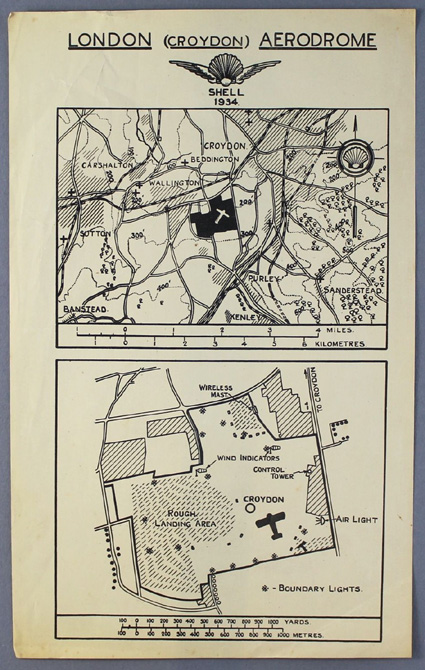 |
|
|
(below) air routes from Croydon in 1936 |
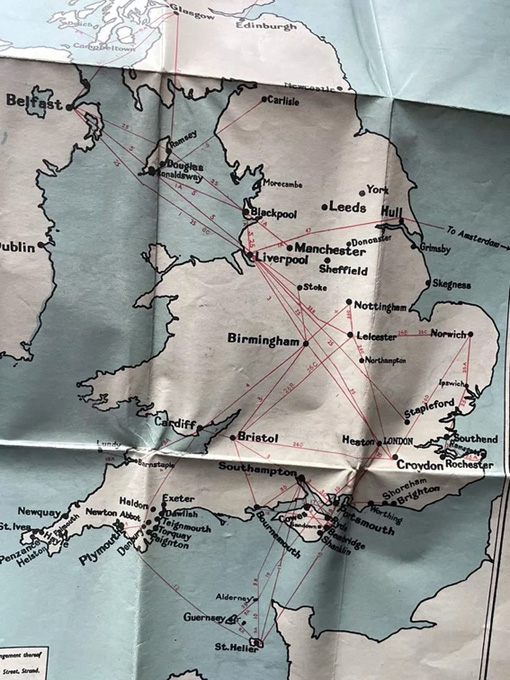 |
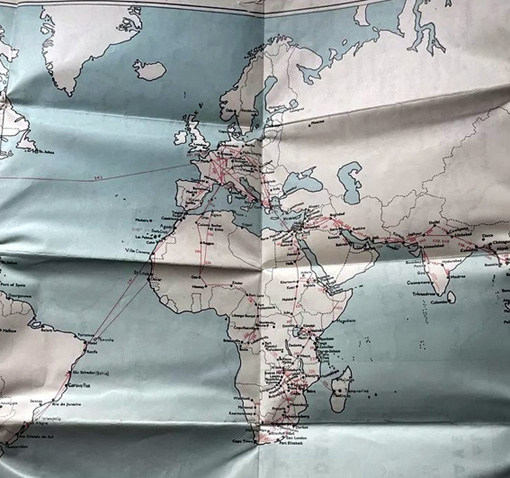 |
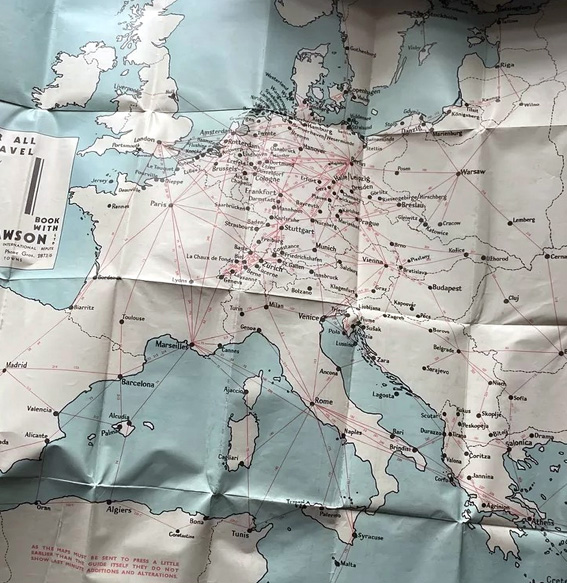 |
|
|
|
|
(below) DH 86 Expressin front. 1936 |
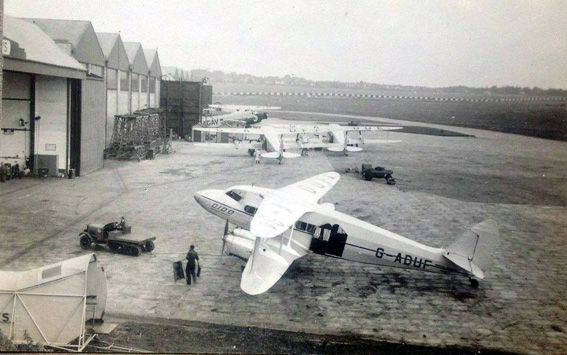 |
|
|
|
|
|
|
|
|
|
|
|
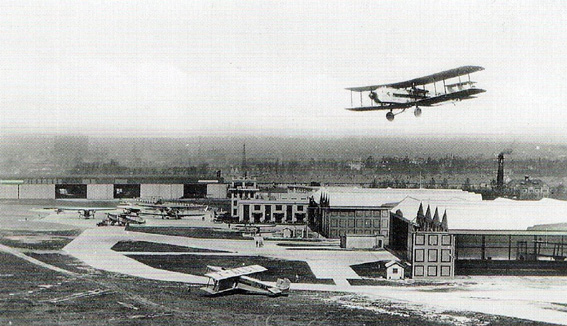 |
|
(above
and below) about 1929-30.
An 'Airco Argus' flying in. |
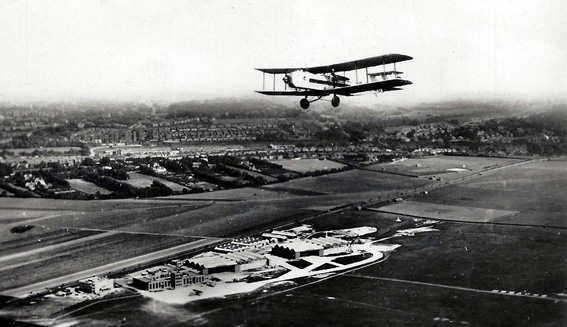 |
|
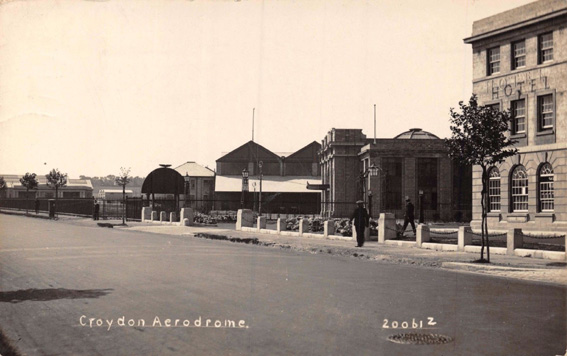 |
|
(above) The aerodrome entrance. October 1929. |
|
|
(below) Purley Way and entrance in the 30's |
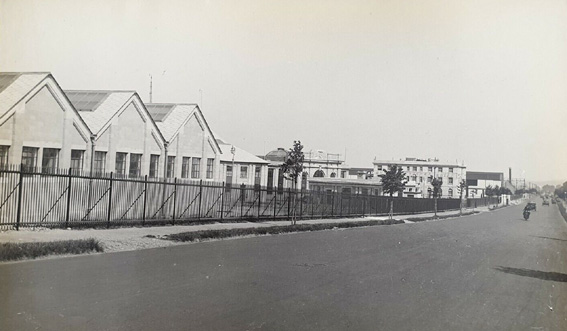 |
|
|
(below) visitors inside a hangar. |
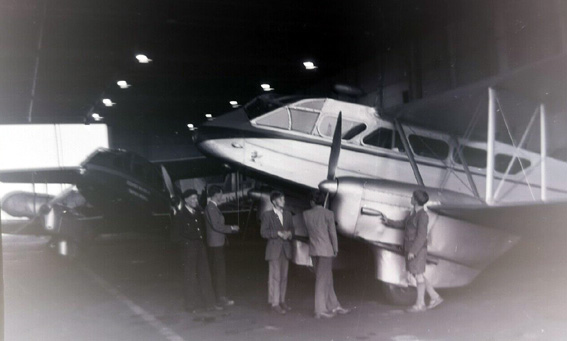 |
|
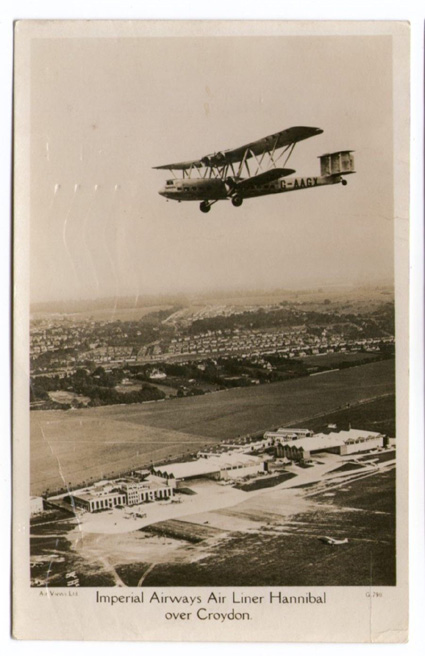 |
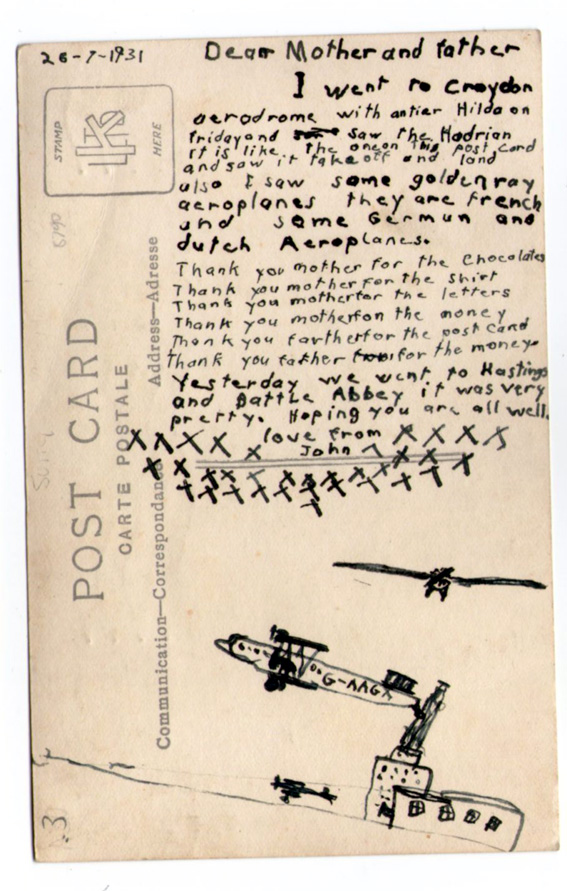 |
|
(above) Hannibal over Croydon 1931 and the back of the
postcard with a description of a boy's visit to the Airport. |
|
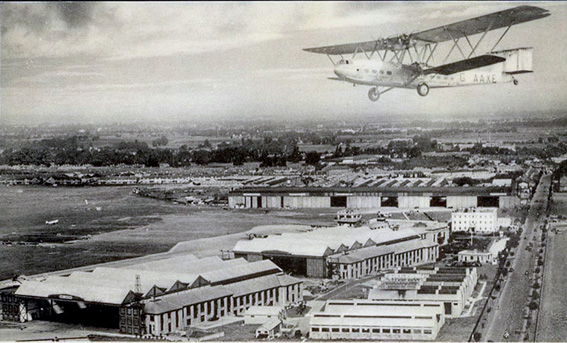 |
|
1932.
(above and below pictures) a Handley Page 42 of 'Imperial
Airways' |
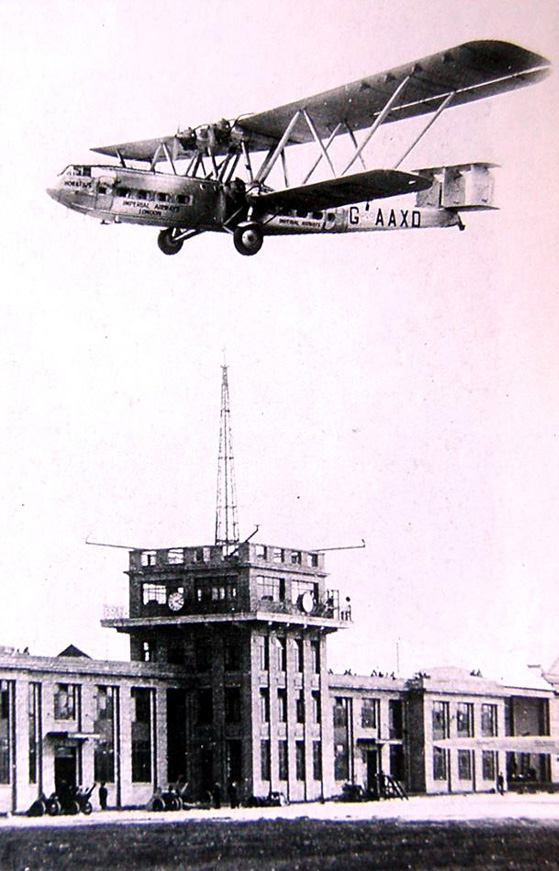 |
|
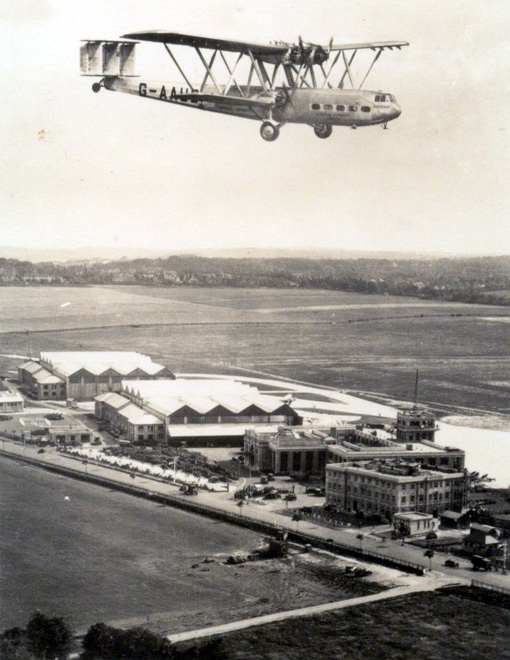 |
|
(above) 'HP42'. 'Hanno' over Croydon. |
|
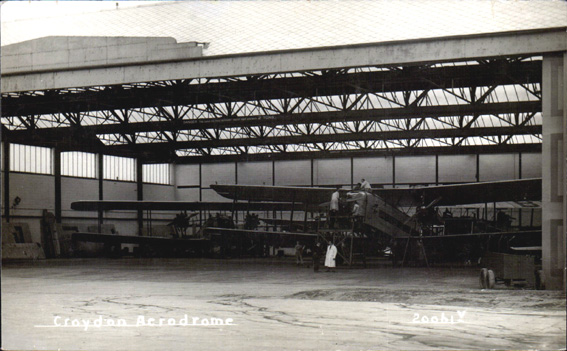 |
|
Aircraft
maintenance (above) in one of the new hangers. |
|
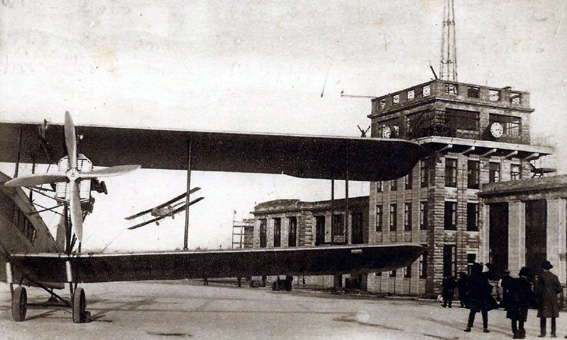 |
|
More airport scene's in 1934. (above)
an Imperial Airways flight from France arriving. (below) an airport policeman stands guard. |
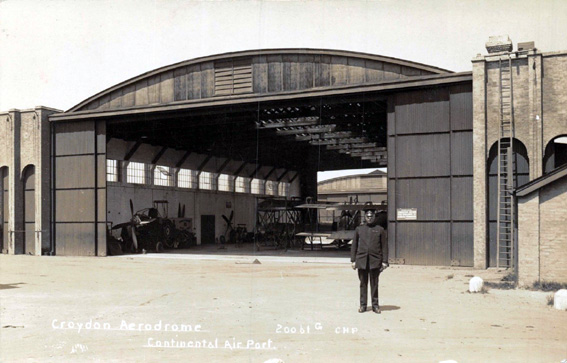 |
|
|
|
(below) letter from Belgium to the Aerodrome B.O. 1938. |
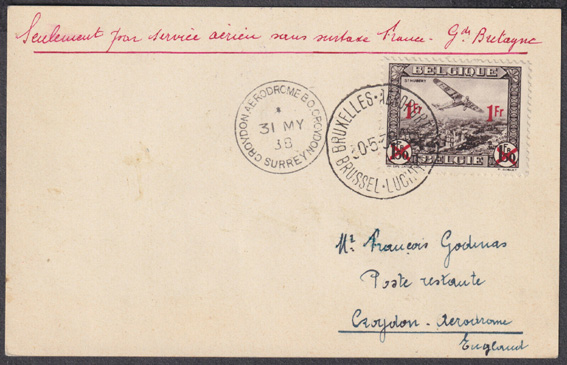 |
|
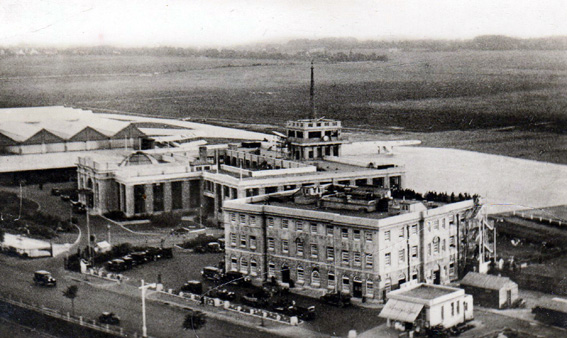 |
|
(above and below) London Terminal Aerodrome Croydon 1935. The 'Aerodrome
Hotel', now has outside seating and gardens established. Note
thye large number of spectators on the Hotel rooftop vantage
point. Below picture was taken on the 12th of June 1935. |
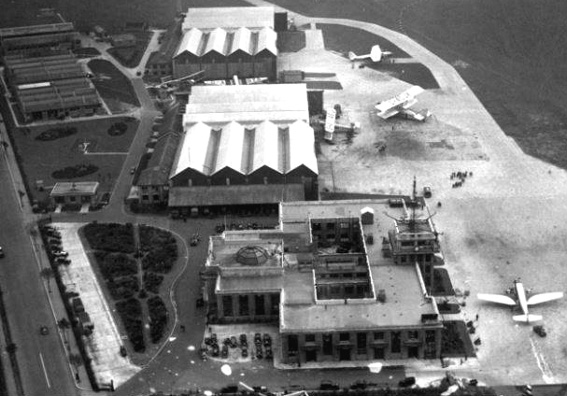 |
|
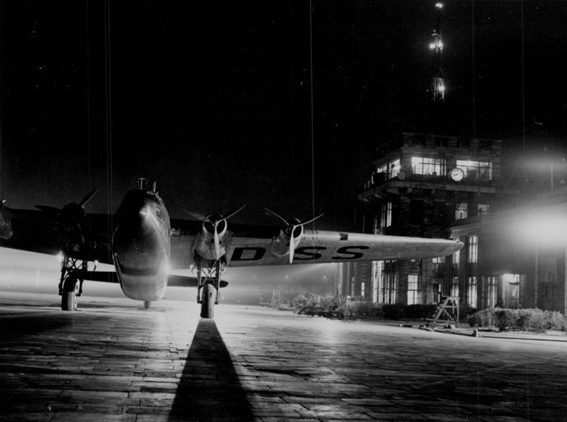 |
|
(above)
Night Flight 1939. 'Egeris' one of Imperial Airways new 40 passenger
aircraft weighing 22 tons, after a night flight from Paris. |
|
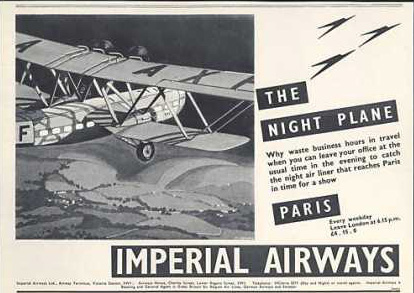 |
|
(above
and below) night flights
to Paris now a regular feature of Croydon. The advertisement
is from 1936. |
 |
|
|
|
|
|
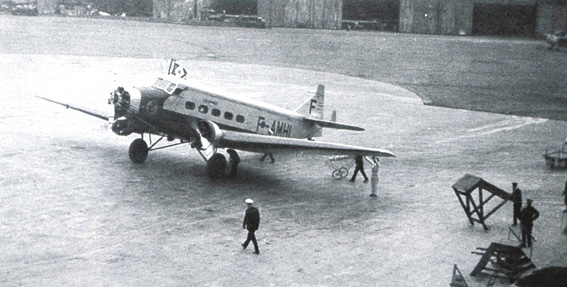 |
|
(above) 'Wibault 282 T12' of 'Air France'.
1936 |
|
 |
|
(above) 1936. the new German aircraft fitted with diesel
engines the 'Von Hindenberg', arrives. |
|
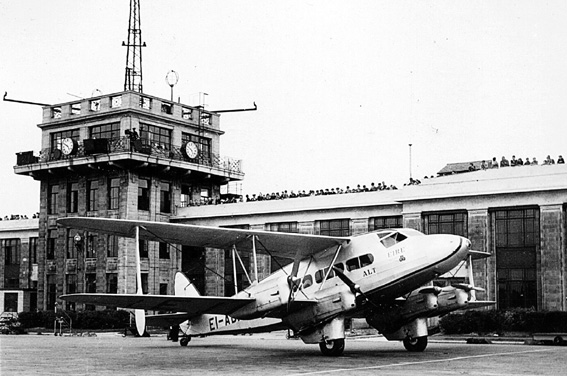 |
|
(above)
an 'Aer Lingus'. 'De Havilland DH86 Express'. 1938 |
|
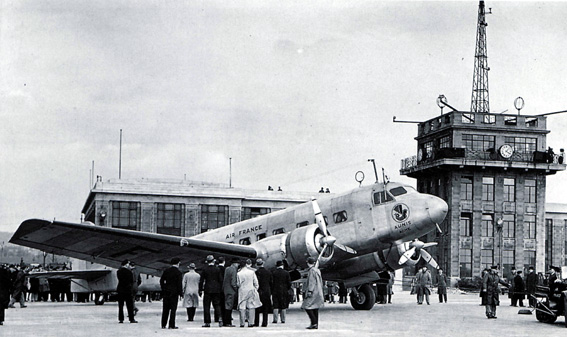 |
|
(above)
'Bloch 220' F-ACHE 'Aunis'. early 1938 |
|
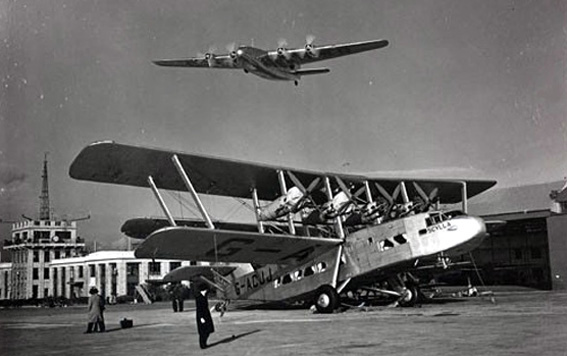 |
|
(above) Armstrong Whitworth 'Ensign' arriving over an
Imperial Airways 'Short Scilla'.1938 |
|
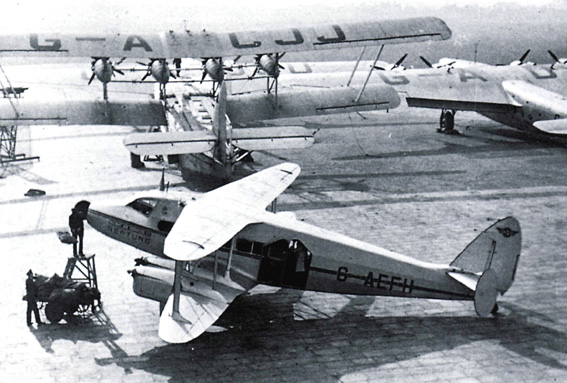 |
|
(above) 'DH86', 'Neptune in front.Behind is a 'Short Scylla',
and back right an 'AW Ensign'. 1938. |
|
|
(below) a busy time of aircraft on the apron 1938. |
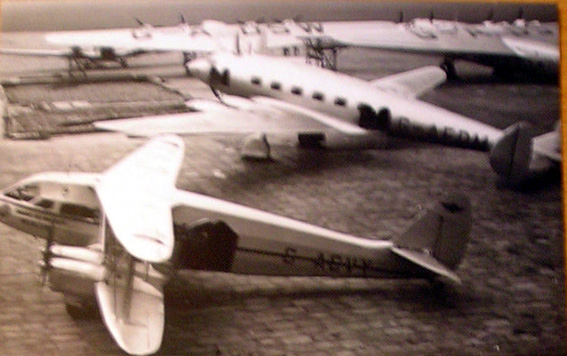 |
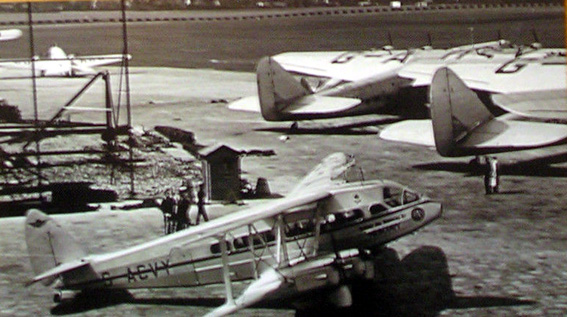 |
|
 |
|
(above) 'Short S17'. 'Syrinx'. 1938 |
|
 |
|
(above) 'Lockheed 10A Electra' of British
Airways. Behind a 'DH89 Rapide' of 'Olley Air Service'. 1938 |
|
 |
|
(above) late 1930's |
|
|
|
|
|
|
(below) In front of Wrightways hangar late 1930's. Left
to right (front), DH84 Dragon, EDH Fox Moth of Mrs V Bruce, DH
Puss Moth. Others unknown |
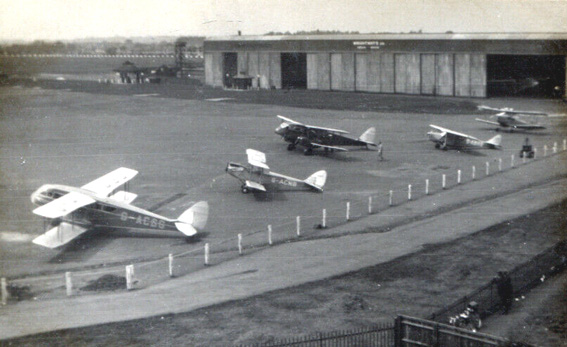 |
|
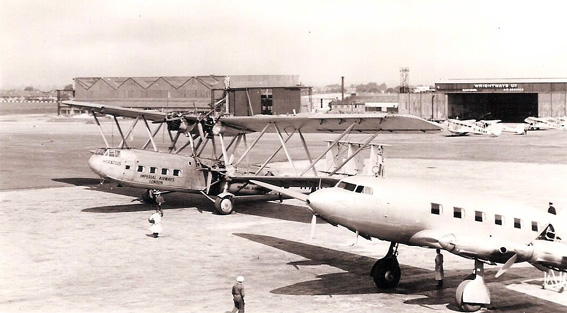 |
|
(above) 'HP42' Horatius behind a 'DH91'
Finaal. 1939. |
|
|
(below) a DH91 Albatross circling over. 1939. |
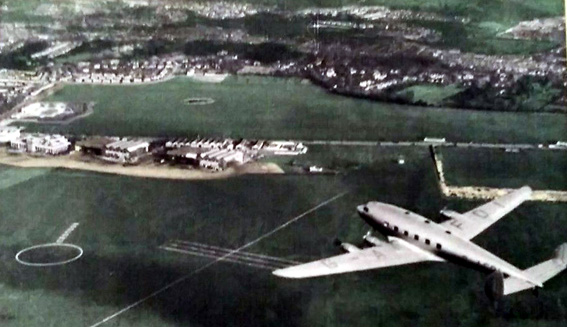 |
|
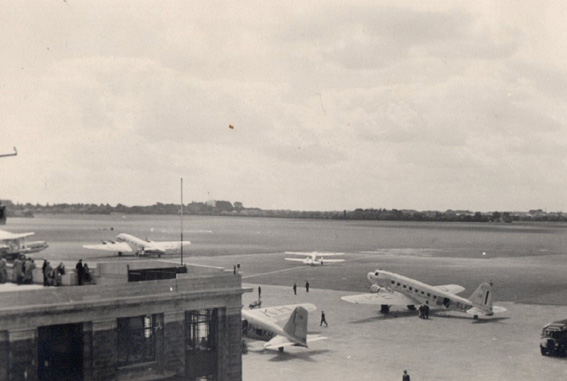 |
|
(above) 1939 |
|
|
(below) Two KLM DC3's. 1939 |
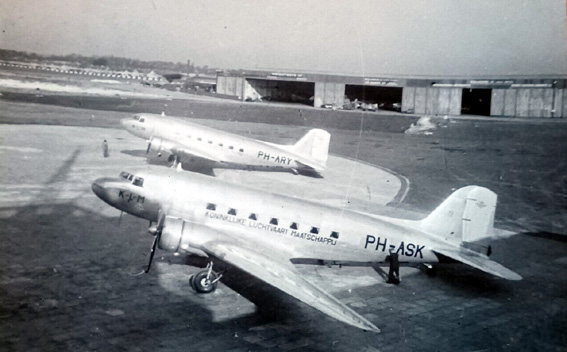 |
|
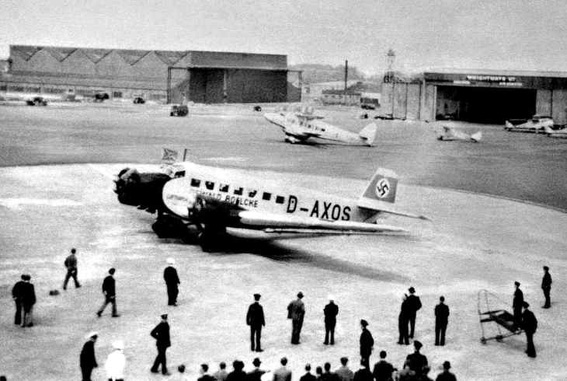 |
|
Flights
between Croydon and Germany were still operating during 1939
almost up to the declaration of war. The swastica was Germany's
national flag, and was used on the tail of Lufthansa planes.
As tensions grew between England and Germany , the German pilots
coming in and out of Croydon started taking slight detours, it
turned out they were mapping the lay of the land for future use.
The (above) photo of a 'Junkers 52 3m' is
of the last 'Lufthansa' to land at Croydon. (below)
members of the German Athletics team stand by a 'Junkers 52'
in 1935 prior to the 'Olympics'. |
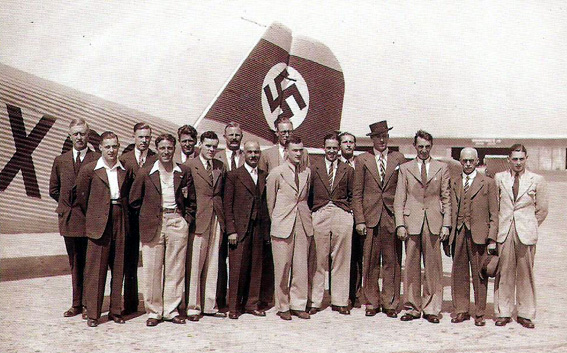 |
|
|
WW2
started when Germany invaded Poland on the 1st of September 1939
and on the 2nd of September 1939 'Croydon Aerodrome' ceased to
be London's civil airport and was taken over by RAF 'Fighter
Command'. |
 |
 |